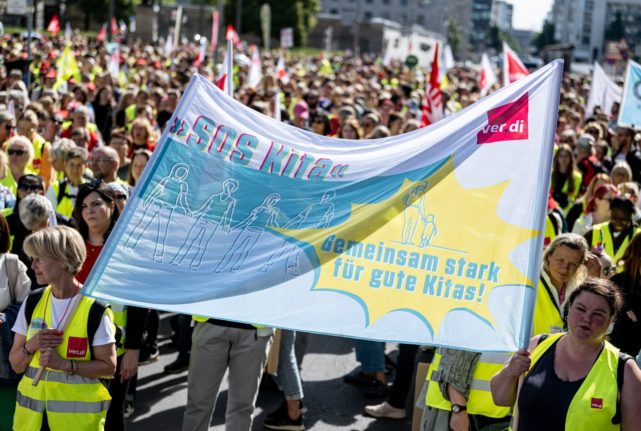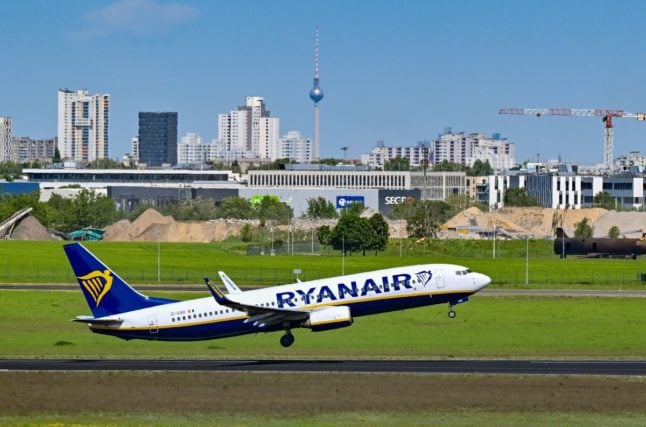Despite promising to postpone their fight for better working conditions this week, services union Verdi has called a major strike in Kitas around Berlin that will take place on Wednesday and Thursday.
According to information obtained by the Berliner Morgenpost, around 7,000 employees at 280 nurseries around the capital have been called to strike.
In a recent interview with Tagesspiegel, Verdi regional chair Andrea Kühnemann had emphased that parents would have the “all clear this week” after several weeks of disruption.
This was widely considered to mean that strikes would be called off.
Clarifying her statements after the most recent walk-out was announced, however, Kühnemann said the union would “guarantee that there will be no cancellations or restrictions in operations due to these strikes”.
However, the move could force many parents to make last-minute childcare arrangements as schools in Berlin break up for the summer holidays on June 18th.
It is a further escalation in an ongoing dispute between Verdi and the Berlin Senate over pay and conditions in the city’s overstretched Kitas, with the union calling for a new agreement that would include cap on class sizes, among other things.
In the past weeks, a total of 13 strike days have been called by Verdi, affecting tens of thousands of families in Berlin.
READ ALSO: Thousands of families affected as Berlin Kitas hit by five-day strike
‘Dramatic crisis’
Kitas in many regions of Germany have been badly hit by the skilled worker shortage – and nursery schools in Berlin are no exception.
In a recent study carried out by the Bertelsmann Foundation, researchers discovered that the capital was almost 19,800 Kita places short and that staff shortages had regularly led to closures.
In a statement put out on Tuesday afternoon, the union accused senators of blocking a sensible solution for employees, parents and children in the nurseries.
“We have a dramatic crisis in the daycare centres, which will become even more dramatic if the Senate does not finally provide some respite,” said Dana Griesche, an education specialist at the Südost Kita. “That’s why we have no choice but to intensify our strike action now.”
READ ALSO: How Germany can make life easier for foreign parents
But the Senate has so far rejected Verdi’s demands, saying that Berlin would be unable to take the steps being demanded without other states also agreeing.
Senators also accused Kita staff of letting down struggling families, with finance senator Stefan Evers (CDU) slamming “pointless strikes on the backs of children and parents”.



 Please whitelist us to continue reading.
Please whitelist us to continue reading.
Member comments